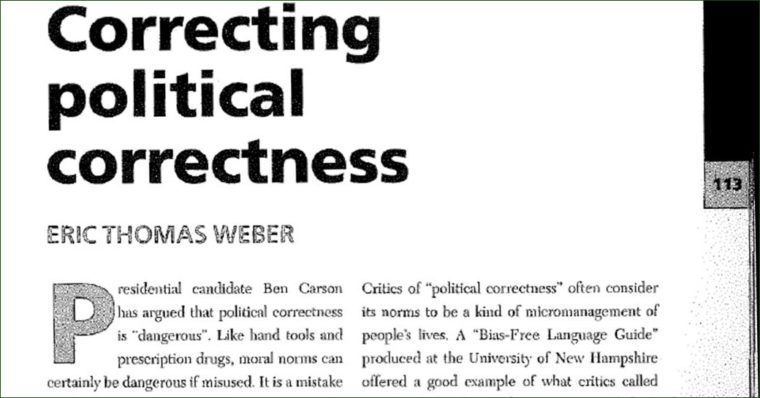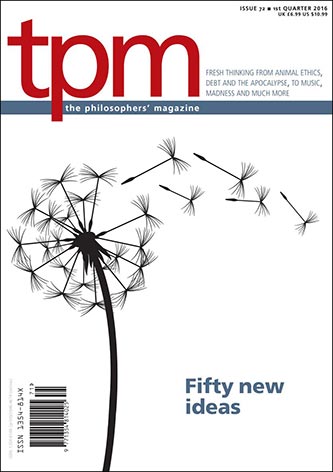(This post is part of a roundrobin reading group on Kojin Karatani’s Isonomia and the Origins of Philosophy. I focus here on chapter three; James Stanescu previously discussed the preface and appendix, I covered chapter one, and Joseph Trullinger discussed chapter two.)
It is common in potted histories of philosophy to try to create systems of equivalence between different metaphysical systems or assumptions and political and economic conditions. (Consider all the ink spilled about the liberalism of the Cartesian cogito.) Karatani tries to draw a through-line between Ionia’s materialistic and naturalistic metaphysics and its efforts to preserve egalitarian economic and political relations. In contrast, the Athenians had both the inequality of slavery and a philosophy of super-naturalism: theology and teleology. We are supposed to conclude that naturalism is thus more egalitarian and root out the theological and the teleological where we find it.
Even an avowed atheist like myself finds this kind of defense a bit too neat; much as I might like to pretend that naturalism leads to equality, I don’t see much evidence for that in Karatani or the history of philosophy. And I can readily see Trullinger’s frustration with the assumption.
Hylozoism
In this chapter, Karatani finally breaks the news that the vaunted Ionian naturalist Thales “is purported to have said, ‘All things are full of gods.'” But Karatani does not allow this claim to undermine his reading of Thales as a naturalist: “Thales did not introduce a magical way of thinking. Quite the opposite: it was in order to move away from magical thinking that he conceived the self-moving original substance.” (Isonomia, 59) This is hylozoism; the belief that the forces animating objects are within them, rather than external.
On Karatani’s view, Aristotle’s fourfold theory of causality problematically injects the existence of a God with purposes into the neat efficient causal structure that Anaximander supplied when he claimed that all things are rooted in the four elements. Where Anaximander saw human development in something like evolutionary terms, the Athenian Aristotle found the cause outside of the objects, in a prime mover and a God understood in the image of a craftsman. Of course, though Karatani does not allow himself to delve into the more charitable readings of Aristotle, there is some reason to see Aristotle’s entelecheia (which combines telos and self-movement) as an embrace or complication of hylozoism.
Back to Karatani, an account of self-movement and efficient causation allows us to explain animal and human evolution as either the product of a breeder (natural selection) or the product of random chance (genetic mutation) without ever making reference to aims or projects by an overarching, anthropomorphized deity attempting to make humanity is His image. Aristotle, Karatani charges, could conceive of the breeder as a divine perfecter of living things; but it takes a true materialist to explain growth, development, improvement and variation without reference to a divine cultivator. In a strained effort to make this connection, Karatani puts great stock in Karl Marx’s gift of Das Kapital to Charles Darwin, and to the theme of Marx’s dissertation: a rejection of Aristotle’s biology for the adaptive naturalism of Democritus and especially Epicurus, whose “random atomic swerve” which enables variation without an eye to progress.
Ironically, this echoes a recent debate among analytic philosophers of biology. Check out Jerry Fodor’s “Why Pigs Don’t Have Wings,” and his subsequent What Darwin Got Wrong with Massimo Piattelli-Palmarini. They argued there that the existence of spandrels–and indeed of curly tailed pigs–suggested that we cannot use natural selection to explain all traits: many such traits are the result of selection yet do not contribute directly to fitness, so they’re not selected for. Karatani simplifies this with an argument–which seems to me to be wrong–that selection can only work within a species, perfecting it for its environment, while random mutations are necessary to open up new ecological niches and thus potential capacities. This seems wrong because it ignores large-scale environmental changes, whereby the pressures of the ecosystem might create species variations without fully destroying older species.
System-Building and the Metaphysical Inertness Thesis
The frustrating thing for me in Karatani’s view is that he seems to believe that matter and motion need to be understood as somehow united from the micro-foundations of the sciences to the macro-systems of the social world, from metaphysics to physics and from biology to sociology. If philosophers point to the usefulness of teleology in ecology, in world systems theory, or in neurology, I am betraying his vision of a purified natural science. I suspect that this is a sophisticated form of the “Ant Trap” that continually forces us to try to articulate group behaviors and roles in terms of individualistic drives and goals.
What’s more, I am very much at the end of my patience with this sort of metaphysical overdetermination. I can’t deny that some metaphysical views seem more appealing to me than others, nor can I deny that certain forms of metaphysical pluralism strike me as particularly pernicious and wrong. But it just seems mistaken to claim that there’s one’s metaphysics dictates a politics; the relationships seem much more contingent.
One can imagine a sort of philosophical Mr. Potato Head with mix-and-match ethical, political, epistemological, and metaphysical views, and while there’s probably work to be done figuring out each unique constellation of ideas would fit together, I don’t doubt that there’s some way to get from B-series temporality to Bayesean reliabilism to monarchism to anti-natalism to moral particularism. (Free dissertation topic!) This is different from what I call metaphysical deflation, wherein metaphysical views are crystallized, overweighted experiences; it’s something more like “metaphysical inertness.” But my co-readers of Karatani are likely to push back against this view; Stanescu is a devoted ontological pluralist, while Trullinger has staked his philosophical project on the necessity of theological immortality for both ethics and political emancipation.
You don’t know what you’ve got ’til it’s gone
Karatani posits that when economic inequality first reared its head in Ionia it led to crisis of foreign tyranny, which could only be resolved through a social contract among Ionians; a codification of pre-existing norms, with all the subsequent issues that any such codification will necessarily bring. This raises some interesting questions about the real value of the pluralistic republic of free exit that he posited initially: if it wasn’t sustainable, to what extent can it act as a model? For Karatani, apparently, this move to the social contract is a part of his larger story about how political, economic, and religious regimes can grow towards a more perfect and universal form through a simple synthesis.
That’s Karatani’s version of historical teleology: somehow the social contract is the result of this pressure and further pressures will eventually lead us to his “Mode D,” which somehow overcomes all the difficulties of previous arrangements: it “recuperates” earlier virtues while overcoming (magically!) prior restraints. While he doesn’t tell us how, it’s clear this is somehow not a true teleology, but rather an equilibrium of self-moving matter. (And yes, this is sarcasm: he seems to have a lot of this sort of ad hoc special pleading, and I’m frustrated by it. But perhaps in Transcritique there’s a better account?)
I think it’s notable that Karatani accuses the Ionians of having been ignorant of the way their social arrangements were rooted in their norms–when the social arrangements start to break down under pressure, they don’t know which components of their previous epoch of egalitarian exit to try to restore. It takes Thales to rally them–with his atheistic philosophy of gods in everything. Otherwise, Ionian isonomy threatened to fall into tribal or priestly domination under a shared myth or ethnic identity, and this, Karatani argues, inevitably ends in tyranny, as it did in Samos.
Karatani depicts Thales as using his natural philosophy as a cryptic “denunciation of tyranny and class.” Somehow, this cryptic message gets through and Ionia manages to fend off prospective tyrants and preserve itself as a social contract or a covenant federation with hylozoic gods. (Footnote 1) Does the subsequent social contract evolve from these prior conflicts, like the natural selection of the breeder? Or is it the result of random swerve–a social mutation?
Atheism Isn’t All It’s Cracked Up to Be
There’s lately been a spate of good articles on the failure of The New Atheists, the group of evangelical atheists that gained fame in the last two decades arguing vociferously that there is no God. I’m most interested in Sam Kriss’s take, “Village Atheists, Village Idiots.” Here comes a lengthy quote, but I promise it’s worth it:
Soren Kierkegaard, the great enemy of all pedants, offers a story that might shed considerable light. In his Concluding Unscientific Postscript, he describes a psychiatric patient who escapes from the asylum, climbing out a window and running through the gardens to rejoin the world at large. But the madman worries: out in the world, if anyone discovers that he is insane, he will instantly be sent back. So he has to watch what he says, and make sure none of it betrays his inner imbalance—in short, as the not-altogether unmad Danish genius put it, to “convince everyone by the objective truth of what he says that all is in order as far as his sanity is concerned.” Finding a skittle-bowl on the ground and popping it in his pocket, he has an ingenious idea: who could possibly deny that the world is round? So he goes into town and starts endlessly repeating that fact, proffering it over and over again as he wanders about with his small furious paces, the skittle-bowl in his coat clanking, in strict conformity with Newton’s laws, against what Kierkegaard euphemistically refers to as his “a–.” Of course, the poor insistent soul is then sent right back to the asylum […]
Kierkegaard’s villagers saw someone maniacally repeating that the world is round and correctly sent him back to the asylum. We watched [Neil deGrasse] Tyson doing exactly the same thing, and instead of hiding him away from society where nobody would have to hear such pointless nonsense, thousands cheer him on for fighting for truth and objectivity against the forces of backwardness. We do the same when Richard Dawkins valiantly fights for the theory of evolution against the last hopeless stragglers of the creationist movement, with their dinky fiberglass dinosaurs munching leaves in a museum-piece Garden of Eden. We do it when Sam Harris prises deep into the human brain and announces that there’s no little vacuole there containing a soul. (h/t Scott Alexander for pulling the quote)
Scott Alexander’s take in Slate Star Codex runs with this reading, and I think it’s definitely the one to beat. It’s so tempting because it captures my own reaction: the problem with the New Atheists is that they won’t shut up about religion, and one of the pleasures of atheism is being able to be indifferent to religious anxieties. Of course, most of those anxieties get recapitulated as meta issues, anyway: metaphysics, meta-ethics, meta-politics, meta-logic, etc. so we don’t escape them. But the New Atheists won’t let us get down to the business of thinking hard about moral particularism and non-ideal political theory; they keep loudly assuring us there is no God, and it’s distracting not least because some of the people with smart things to say on these topics are theists.
And this is the other, perhaps better explanation: a lot of my colleagues and friends and students are theists and the New Atheists insist on starting fights with them. The New Atheists have found themselves exiled because they’re rude and boorish for insulting my friends, and all the other atheists’ friends, and in a deeper sense for violating the religious tolerance that Europe and the US embraced after the wars of religion. I’m happy to be an atheist, but I’m not happy with the reputation of atheism in their hands.
Of course, if religion really is a main cause of some of the great evils that bear its name, the New Atheists are a bit more explicable. If faith moves some people to extraordinary excellence and extraordinary evil, then my “metaphysical inertness” view looks pretty weak. You can’t fight wars of religion without religion, right? There’s no drive to convert, kill, or exile the pagans, infidels, or goyim without a corresponding conception of how faith or divine right functions to create those categories, is there?
My view is that most religious atrocities are better understood as the result of ordinary motivations, with faith as the excuse: there’s a lot of evidence for the thesis that reason is a slave to the passions, in the sense that we use reason to justify our pre-existing commitments. I think many people of faith see something like my inertness thesis at work when they consider the wrongdoing of their coreligionists. No Christian, Muslim, or Jew looks at the twisted depravities of historical members of their religion and thinks that the shared faith was truly responsible for those actions. No atheist feels responsible for the misdeeds of our fellow atheists, after all! Always, we interpret the misdeeds of those who share our commitments as mistaken theology, or a broken soul prone to misinterpretation or self-justification or demagoguery.
My view merely extends that error theory: just as God deserves no blame for the atrocities that are committed in His name, He deserves no credit for the great works of art and awesome altruism to which His followers are sometimes inspired. It’s meant as a compliment to those great souls who express their commitments religiously: when someone who belongs to a religious community has a commitment to do good in the world, to be honorable, serve the most vulnerable, or look beyond the in-group, then faith and religion will be the means by which you give shape to those commitments.
But this ignores the large scale sociological effects of religion. In recent conversations with colleagues, I’ve been revisiting my inertness thesis with an eye to the empirical literature. The difficulty with the “merely individual” account of religious expression is that there is an entire discipline, sociology, that is founded on the view that membership in religious communities has a kind of weak causal power. Durkheim, Weber, and Du Bois all grounded their sociological theories on the causal power of these religious cultures. If religion can change the suicide rate, the economic growth rate, or underwrite white supremacy, than it is not inert. But the fact that religion can do all of those things suggests that Karatani’s account (and the New Atheists’ vast antipathy) is woefully inadequate for replacing religious cultural institutions or even differentiating these diverse effects.
At the very least religions can act as a sort of attractor, molding attention, shaping behavior, and creating cooperative pressures in particular–usually fruitful–ways. The worst offenses of religious people are the same kinds of in-group loyalty and out-group enmity that we see in all societies: motivated reasoning activating of deep tribal impulses from our evolutionary past. Yet the most extraordinary acts of women and men of faith and conviction seem almost impossible to imagine in a flat world of metaphysical inertness, and allow new forms of life and new sources of solidarity, including cosmopolitan political regimes that are even now working to destroy the notion of tribal in-groups once and for all.
- Oddly, Karatani usually depicts social contracts as Hobbesean vertical covenants between the ruler and the ruled, but in Thales’ case the covenant appears to be horizontal, between the citizens. (It’s possible that this terminological confusion is a result of the translation from Japanese.)

 It’s been a while since the last post here. In compensation, it’s not been a bad year in terms of getting some research out there. First, we finally managed to publish “
It’s been a while since the last post here. In compensation, it’s not been a bad year in terms of getting some research out there. First, we finally managed to publish “




